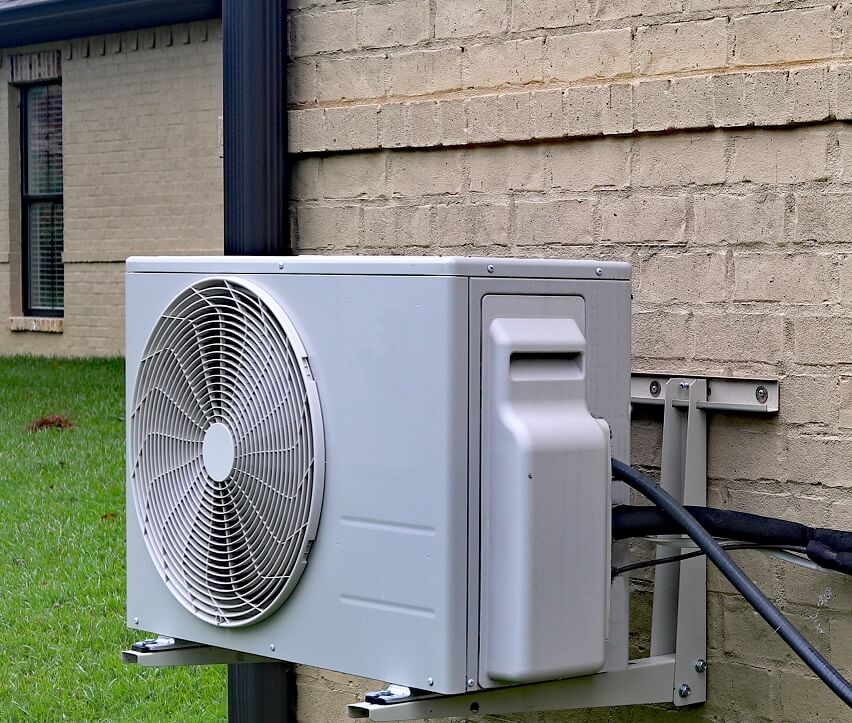I. Introduction
- Definition and purpose of an air conditioning condenser
- Importance of a well-functioning condenser for HVAC systems
II. How Does an Air Conditioning Condenser Work?
- Explanation of the condensation process in AC systems
- Role of the condenser in transferring heat
III. Types of Air Conditioning Condensers
- Overview of different types (e.g., air-cooled, water-cooled, evaporative)
- Advantages and disadvantages of each type
IV. Factors to Consider When Choosing a Condenser
- Size and capacity requirements for different spaces
- Energy efficiency and environmental impact
V. Common Issues with Air Conditioning Condensers
- Refrigerant leaks and their impact on performance
- Maintenance tips to prolong the life of the condenser
VI. How to Troubleshoot Condenser Problems
- Identifying common signs of a malfunctioning condenser
- Step-by-step troubleshooting guide
VII. DIY Maintenance for Air Conditioning Condensers
- Cleaning and removing debris from the unit
- Checking for damaged components and repairs
VIII. Hiring a Professional: When to Seek Help
- Indications that professional assistance is necessary
- Choosing a reputable HVAC service provider
IX. Upgrading to a New Air Conditioning Condenser
- Signs that it’s time for a replacement
- Factors to consider when upgrading
X. The Future of Air Conditioning Condensers
- Advancements in technology and eco-friendly options
- Potential impact on energy consumption and sustainability
XI. Conclusion
Air Conditioning Condenser: Understanding the Heart of Your AC System
If you’ve ever enjoyed the comfort of a cool, refreshing breeze on a scorching summer day, you can thank your air conditioning condenser. This vital component plays a crucial role in keeping your home or workplace comfortable during hot weather. In this article, we’ll delve into the workings of an air conditioning condenser, explore different types available, and provide essential maintenance tips to ensure your AC system operates efficiently for years to come.
I. Introduction
1.1 Definition and Purpose of an Air Conditioning Condenser
An air conditioning condenser is an integral part of the HVAC system responsible for cooling indoor spaces. Its primary function is to release heat absorbed from the indoor air into the external environment, enabling the circulation of cool, conditioned air indoors.
1.2 Importance of a Well-Functioning Condenser for HVAC Systems
A well-maintained condenser is essential for the overall performance and energy efficiency of an air conditioning system. If the condenser malfunctions, it can lead to reduced cooling capacity, increased energy consumption, and even complete system failure.
II. How Does an Air Conditioning Condenser Work?
2.1 Explanation of the Condensation Process in AC Systems
The cooling process begins with the compressor pressurizing the refrigerant, transforming it into a high-temperature, high-pressure gas. As this hot gas flows through the condenser coil, it releases heat and condenses into a high-pressure liquid.
2.2 Role of the Condenser in Transferring Heat
The condenser facilitates heat transfer by allowing the high-pressure refrigerant to release heat to the surrounding air. As the refrigerant cools down and transitions into a low-pressure liquid, it is ready to re-enter the evaporator coil to repeat the cooling cycle.
III. Types of Air Conditioning Condensers
3.1 Overview of Different Types
There are several types of air conditioning condensers available, each designed to suit specific applications. The most common types include air-cooled condensers, water-cooled condensers, and evaporative condensers.
3.2 Advantages and Disadvantages of Each Type
While air-cooled condensers are widely used due to their simplicity and cost-effectiveness, water-cooled condensers offer higher efficiency. Evaporative condensers, on the other hand, are ideal for water-saving and energy-conscious applications.
IV. Factors to Consider When Choosing a Condenser
4.1 Size and Capacity Requirements for Different Spaces
Selecting the right condenser size is crucial to match the cooling demands of your space. Undersized or oversized condensers can lead to inefficient operation and increased energy consumption.
4.2 Energy Efficiency and Environmental Impact
In recent years, energy efficiency and environmental impact have become significant considerations when choosing an air conditioning condenser. Opting for a high-efficiency unit can result in substantial energy savings and a reduced carbon footprint.
V. Common Issues with Air Conditioning Condensers
5.1 Refrigerant Leaks and Their Impact on Performance
Refrigerant leaks are one of the most common issues with air conditioning condensers. A leak can lead to reduced cooling capacity, increased energy consumption, and potential damage to other system components.
5.2 Maintenance Tips to Prolong the Life of the Condenser
Regular maintenance is vital to keep your condenser in top shape. Simple tasks like cleaning the unit, inspecting for debris, and checking refrigerant levels can significantly extend its lifespan.
VI. How to Troubleshoot Condenser Problems
6.1 Identifying Common Signs of a Malfunctioning Condenser
Recognizing signs of a malfunctioning condenser can help you address issues before they escalate. Unusual noises, reduced cooling performance, and ice buildup are among the indicators of a problem.
6.2 Step-by-Step Troubleshooting Guide
We’ll provide a step-by-step guide to help you troubleshoot common condenser problems. From checking electrical connections to examining fan operation, you can save time and money by attempting simple fixes yourself.
VII. DIY Maintenance for Air Conditioning Condensers
7.1 Cleaning and Removing Debris from the Unit
Accumulated dirt and debris can hinder the condenser’s performance. We’ll walk you through the process of cleaning the condenser to optimize its efficiency.
7.2 Checking for Damaged Components and Repairs
Regularly inspecting the condenser for damaged or worn-out components can prevent major breakdowns. Learn how to perform basic repairs and when to call in a professional.
VIII. Hiring a Professional: When to Seek Help
8.1 Indications That Professional Assistance Is Necessary
While DIY maintenance is beneficial, certain condenser issues require professional expertise. We’ll outline situations where seeking help from an HVAC technician is the best course of action.
8.2 Choosing a Reputable HVAC Service Provider
Selecting the right HVAC service provider is essential to ensure quality repairs and reliable service. We’ll provide tips on finding a reputable and experienced technician.
IX. Upgrading to a New Air Conditioning Condenser
9.1 Signs That It’s Time for a Replacement
Knowing when to upgrade your air conditioning condenser can save you from costly repairs and energy waste. We’ll discuss indicators that suggest it’s time for a new unit.
9.2 Factors to Consider When Upgrading
Upgrading to a new condenser involves several considerations, such as energy efficiency, SEER ratings, and compatibility with your existing HVAC system.
X. The Future of Air Conditioning Condensers
10.1 Advancements in Technology and Eco-Friendly Options
As environmental concerns grow, the HVAC industry is embracing eco-friendly condenser solutions. We’ll explore emerging technologies that promise improved efficiency and reduced environmental impact.
10.2 Potential Impact on Energy Consumption and Sustainability
The adoption of innovative condenser technology could lead to significant reductions in energy consumption, benefitting both homeowners and the environment.
XI. Conclusion
In conclusion, the air conditioning condenser is a vital component that plays a central role in keeping indoor spaces comfortable during hot weather. Understanding how the condenser works, knowing how to maintain it, and recognizing when to seek professional help are essential for ensuring optimal performance and efficiency.
Now, take the first step in maintaining your AC system by performing simple DIY maintenance. Remember, a well-maintained condenser not only provides cool air but also contributes to energy conservation and a greener environment.





Leave a reply